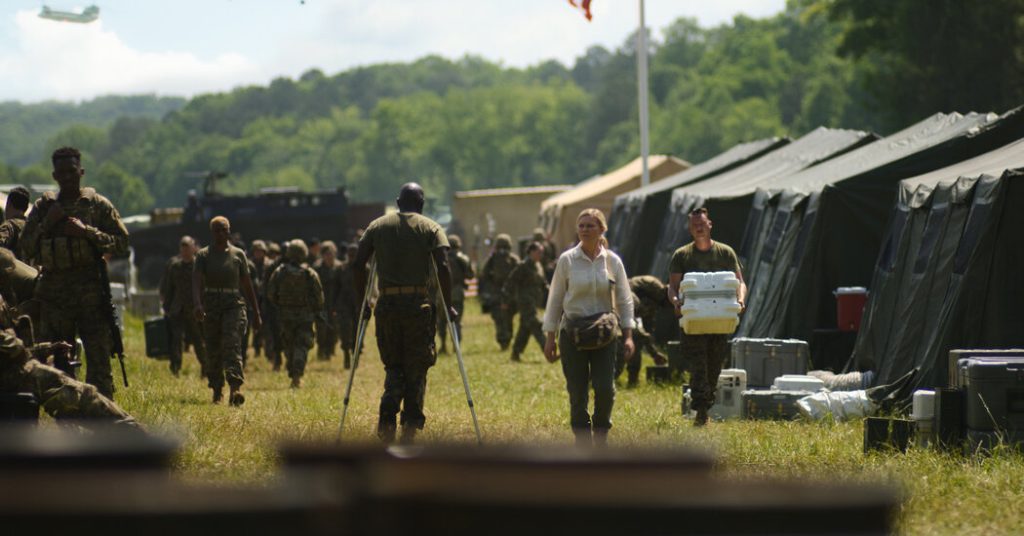The prospect of America collapsing into armed conflict has become a prominent theme in the country’s political conversation, from everyday voters to polls and speculative fiction. The dystopian action film “Civil War,” which explores an alternative America plunged into a bloody conflict, has topped box office sales and tapped into national anxieties following the storming of the Capitol on January 6, 2021. While the idea of a future civil war remains speculative, it reflects widespread unease in American politics that has been fueled by violence and chaos in the country.
The fear of political division escalating into large-scale violence has been exacerbated by violent threats against members of Congress and reports of hate crimes in major cities. Former President Donald J. Trump’s false claims about the 2020 election and his glorification of the Jan. 6 rioters have only added to the sense of unease. President Biden has vowed to defend democracy, warning of threats to the country’s institutions. Polls show a significant portion of voters believe the country’s deep divides could lead to not just rhetorical battles but actual armed conflict.
The film “Civil War” intentionally presents vague political scenarios to illustrate the risks of polarization, extremism, and division in society, both in the United States and globally. Its inscrutable politics have managed to attract a diverse audience across political divides. Exit interviews revealed that viewers, regardless of their political leanings, were drawn to the film’s political dystopian storyline. The movie has resonated with audiences in both conservative and liberal markets, reflecting a growing concern about political chaos and violence.
Research indicates a rising public fear of violence, with surveys showing that a significant portion of voters believe the country is on the path to a second Civil War. Concerns about potential violence from the losing side in future elections, and the risk to American democracy depending on election outcomes, have also been highlighted in polls. While some experts believe discussion of a civil war stems from a feeling of insecurity rather than reality, others warn of a potential decade of political instability and violence that could involve assassinations and militia groups.
Historians and political scientists caution against dismissing the possibility of another civil conflict, emphasizing that the country is facing a time of heightened political instability and violence. The movie “Civil War” realistically portrays violence in familiar American settings, challenging the belief that such conflicts could not happen in the United States. While not all experts believe the country is on the brink of another civil war, they acknowledge the growing polarization and institutional mistrust that could contribute to local vigilante conflicts.
The relationship between popular media and public opinion about politics is noted, with successful movies and shows often reflecting and shaping societal beliefs. The influence of real-life political events on entertainment is evident, with political norms and behaviors shifting in response to changing circumstances. While some argue that the current political climate does not necessarily indicate an imminent civil war, others caution against naïve assumptions that the country is immune to such conflicts. If a second civil war were to occur, it could differ significantly from the historical precedent, reflecting modern challenges and divisions.


